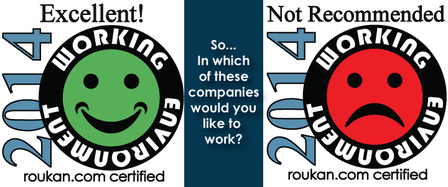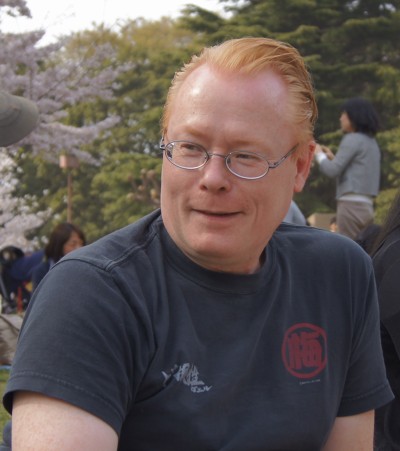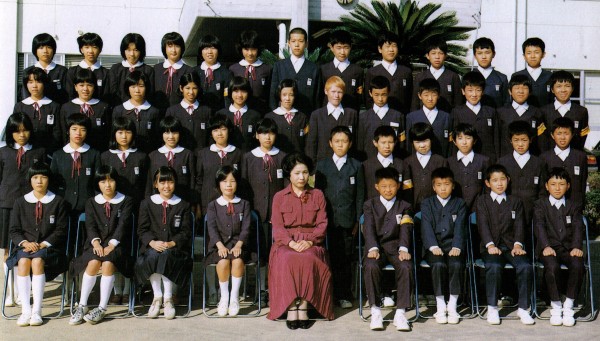|
We are pleased to announce that Roukan.com is now an official sponsor of the Asia-Pacific Coaching Alliance. Roukan.com specializes in Work Environment (WE) consulting and advisory services.
0 Comments
The Asia-Pacific Coaching Alliance's Advisory Board member, Kim Pedersen, was just interviewed by Asia Biz's Howard Lim. This is a very fascinating interview as Kim is one of the few foreigners to have been educated in the Japanese public school system rather than shipping of to the English-language curriculum's found in the international schools.
A Comparison Between Japanese & Danish Work Environments & Its Influence On Work Life Balance, Part 3
By Kim Pedersen (Guest Blogger) Originally, roukan.com was created in an effort to contribute to the improvement of the Japanese working environment. The reason for this is that having worked for both Japanese and Danish companies in a number of different roles I had been privy to seeing two completely different working environments and most importantly how these work environments affect a company, the workers' productivity and the workers' quality of life. I will try to describe some of the key differences between the two countries below. Please bear mind that this description obviously will include some generalizations so it will not necessarily fit nor describe all companies. That said, it does describe and compare the most common differences and I hope you find it useful. In Denmark, there are many workers who are very happy and satisfied with their job. They are professionals and they want to make a difference for their company. Further, they are actively engaged in the company’s activities and they contribute any way they can. This also means that they may well find it necessary sometimes to express an opinion which goes against their boss's opinion if their professional knowledge tells them that it is in the interest of the company to do so. This is not only considered completely legitimate behavior, it is expected behavior in the Danish work place. This is the ethos of the Danish work environment: As a worker, you are paid to contribute to the company with all of your knowledge and you, therefore, must speak up when you have critical knowledge or information. When you do so, you will typically be respected by your co-workers and even management for sharing your honest opinions and knowledge. In general, there is a good atmosphere in the Danish work place where the interaction between employees and superiors is sound and healthy. A healthy interaction, in turn, makes it possible for the company to find critical issues in time and to develop lucrative alternatives that nobody in the management layer of the company may have thought of or previously considered. There many advantages to be gained by respecting your workers and giving them the opportunity and right to speak up as well as giving them credit for and acknowledging their contributions. Compared to this Danish working environment, however, a lot of Japanese people tend to think that work not fun, but a necessity, a burden or duty we all bear and that we have do our best at. Of course it depends on the person you ask, but as time goes by, many Japanese tend to get settled in their present situation and think that that's just the way things are. They are very proud of their jobs, but as Westerner, sometimes you wonder, what about it is about their job that they are so proud of. Japanese companies, by and large, are known for creating “Yes-men”, meaning whatever the superior officer orders, the worker must obey and follow. The worker's professional opinion is often secondary or even totally ignored no matter the situation or the effectiveness of his opinion. This really reality can really damage a person’s pride and directly and negatively impact his degree of satisfaction with life. This dissatisfaction most often comes out on display after working hours, when Japanese workers go to an “Izakaya” (Japanese-style pub) together, and engage in shop talk and bitch sessions about their bosses. And so it goes day in and day out, month in and month out, year after year. It's a never ending story for many Japanese workers. Yet, Japanese workers seem to have accepted that this is how things work as most of them just don’t know any other way nor see any other alternatives to their present situation. What Is Working Environment & Why Is It So Important?
By Kim Pedersen (Guest Blogger) Kim Pedersen is an expert in Japan business and global working environments and the founder of Roukan.com (Roukan.jp localized for the Japanese market) as well as a member of the Asia-Pacific Coaching Alliance's advisory board. Why Is Working Environment (WE) So Important? Well, the simple answer to this question is that it has a huge impact on a company’s profits. If a profitable organization is important to you then you should pay careful attention to your company's WE. This is just one of the reasons why WE is so important. Another reason for its importance is that it influences an employee’s well-being to a very high degree. From a corporate standpoint, depending on how you understand and manage WE you can either increase the profitability and competitiveness of your company or you can risk being potentially sued and/or losing money through lack of employee engagement and reduced productivity, absenteeism and so on. The funny thing about WE is that depending on which path you choose you will either receive all of the positive effects or all of the negative effects. There seems to be no middle ground in regards to WE. In practice, this means that you can choose to have very satisfied employees, a good working environment and higher productivity and profits or you can choose to have very unsatisfied employees, a bad working environment and the chance of litigation and resultant lower profits. So what is your choice going to be? We would like to welcome Kim Pedersen to our Advisory Board.
Kim is an expert on international work environments and work environment studies and analysis. He is a multicultural person with extensive experience living, working and doing business in and with Japan over the last 40 years. As a native Danish and Japanese speaker as well as possessing fluent English he also holds an export and marketing degree from the Danish Export Institute. Kim has been working under both Japanese and Danish working environment (WE) at several different levels ranging from being employed as a commercial attaché at the Royal Danish Embassy, being a manager in a Japanese company as well as running his own businesses in Japan and Denmark. Kim is also the founder of the global Work Environment improvement company Roukan which can be found at roukan.com (and roukan.jp for the Japanese version) Roukan.com is based solely on employee input making possible for employees to give their honest opinion and feelings. |
About UsThe Asia-Pacific Coaching Alliance (APCA) is the #1 Gateway for Asia-Pacific Coaching Opportunities and Knowledge™. Archives
January 2017
Categories
All
|
|
© Copyright 2012-2024 The High-Impact Coaching Alliance. All Rights Reserved.
|




 RSS Feed
RSS Feed

